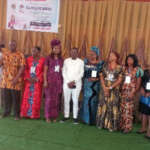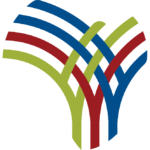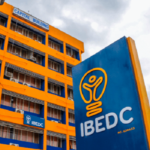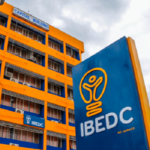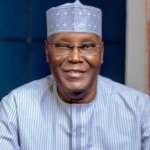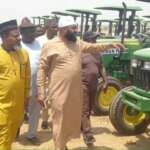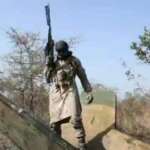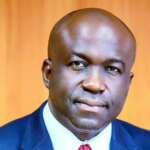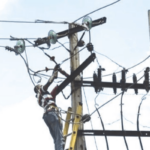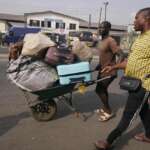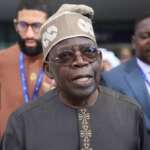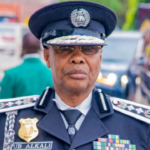A Closer Look at Nigeria
Nigeria Flag

Nigeria Formation Date
October 1, 1960
Nigeria Capital Name
The capital of Nigeria is Abuja.
Nigeria Neighbours
Exploring Nigeria
Origin of Nigeria
Nigeria is a West African country made up of 36 states and one Federal Capital Territory. Nigeria has an ancient and vibrant history, with its roots stretching back over 10,000 years. The earliest known empire of the region was Nok, which flourished from 500 BC to 200AD. Located in the northeastern part of the country, Nok was known for the production of terracotta sculptures and other artifacts. The Northern part of Nigeria was also occupied by the Later a gons from the 14th century onward. Until the 19th century, Nigeria comprised several separate ethnic and political entities linked together through trade. The modern nation of Nigeria was founded when Britain unified the Northern and Southern Protectorates in 1914. The country was granted full independence on October 1, 1960. Since then, the Republic of Nigeria has become a major regional power in West Africa and an important member of the United Nations.Culture
The people of Nigeria have a rich culture that is celebrated across the country. Music is an integral part of Nigeria’s culture and there are many different styles of music that can be heard in different parts of the country. Dance is also an important part of Nigerian culture. Traditional dances which usually involve elaborate costumes and vibrant music are often performed during festivals and important events. The arts and crafts of Nigeria are also celebrated throughout the country. Beautiful fabrics, sculptures, masks, and carvings can all be found in markets and stores across the country. Cuisine is an important part of Nigerian culture and there is a wide range of dishes that are popular nationwide.Sport
Sports are an important part of Nigerian culture. Football (soccer) is by far the country’s favourite sport, with many Nigerians playing in teams both domestically and internationally. Basketball, cricket, and tennis are also popular in the country, as well as athletics. Swimming is a popular pastime among Nigerians, and beach resorts are popular destinations for vacationers and locals alike. Other sports that are popular in Nigeria include volleyball, badminton, and martial arts.Religions
Nigeria is a deeply religious country, with over half of its population being adherents of either Christianity or Islam. Christianity is the dominant religion, with over 40% of the population being affiliated. Islam is practiced by approximately 50% of the population, while the remaining 10% practice traditional beliefs. Many Nigerians are also members of several Christian denominations, including Catholicism, Anglicanism, Pentecostalism, and Methodism. The practice of traditional religions has waned in recent decades, although it still has followers in rural areas.Languages
Nigeria has over 500 languages, with the most prominent being English, Hausa, Yoruba, Igbo and Fulani. English is the official language and is widely spoken in cities and urban areas. Other languages are spread out across regions, with each having its own distinct dialects. English is the language of instruction in public schools and higher education, though a few universities also offer courses in local languages. Some people are conversant in multiple languages.Education
Education in Nigeria is provided by both public and private institutions. Primary education lasts for six school years and is followed by a three-year secondary education. After completing secondary school, students can either pursue tertiary education at a university or pursue vocational education and training. Nigeria has some of the oldest universities in Africa, including the University of Ibadan, University of Nigeria, Nsukka, and Bayero University, Kano. In addition to these major universities, numerous other colleges, polytechnics, and research institutes exist throughout the country.Demographics
Nigeria is the seventh most populous country in the world, with a population of over 200 million people. It has an estimated growth rate of 2.8%, with an estimated annual population growth of 5 million people. Nigeria is a very diverse country with over 250 different ethnic groups. The largest ethnic group is the Hausa, which makes up nearly a third of the population, while other major ethnic groups include the Yoruba, Igbo, and Fulani.Commerce
Nigeria is a major economic hub in West Africa. The economy is mainly based on oil and gas, with the oil and gas sector contributing nearly 30% of the country’s GDP. Other major industries in Nigeria are agriculture, manufacturing, and telecommunications. In recent years, the Nigerian economy has seen significant growth fuelled by increased investment in oil production. The country is also diversifying its economy by investing in other sectors such as mining, manufacturing, tourism, and real estate.Weather
Nigeria has a tropical climate, with hot and humid weather year round. Much of the country experiences the dry Harmattan wind during the winter season, which can bring cooler temperatures and reduce humidity. In the south of the country, the rainy season occurs between March and October and brings significant amounts of rainfall to most areas.Borders
Nigeria shares borders with Benin, Chad, Cameroon, and Niger. It also shares maritime borders with Equatorial Guinea and the Gulf of Guinea. Nigeria’s borders are protected by the Nigerian Armed Forces, which is the country's military and paramilitary organization.Nigeria Highest Point Name
The highest point in Nigeria is Chappal Waddi, located in the north-central state of Nassarawa. Its elevation is 2,419 metres (7,936 feet) above sea level.
Nigeria Capital Longitude
The capital of Nigeria is Abuja, and its longitude is 7.398574.
Nigeria Capital Latitude
Abuja is the capital of Nigeria and is located at 9.058° N, 7.492° E.
Nigeria Official Languages
The official languages of Nigeria are English, Hausa, Igbo, Yoruba, Pidgin English, and Fulani.
Nigeria Ethnic Groups
Nigeria is a diverse country with over 250 ethnic groups and languages. The three largest ethnic groups are the Hausa-Fulani, the Yoruba, and the Igbo. The Hausa-Fulani group is predominantly found in the northern part of Nigeria, while the Yoruba reside primarily in the south western states and the Igbo inhabit the south eastern states. Other significant ethnic groups include the Kanuri, Edo, Ijaw, Tiv, and Ibibio. Minor ethnic groups include the Nupe, Gwari, Idoma, Goemai, Igala, Kambari, Bura, Adamawa-Ubangi, and Gbagyi. A common language amongst all of these groups is English, though many also speak their own native language.
Nigeria Religions
Nigeria is home to a diverse range of religious faiths and beliefs. The three major religions of Nigeria are Islam, Christianity, and traditional indigenous beliefs. Islam is predominant in the northern region of Nigeria, while Christianity is dominant in the southern region. Traditional indigenous beliefs are a mix of spiritual and ancestral worship with the belief in numerous deities and spirits. Many Nigerians also combine elements of the three major religions in their beliefs. Islam is typically associated with the Hausa-Fulani people, traditional beliefs are common among the Yoruba and Igbo, and Christianity is widely practiced among the Edo people. There are also significant minorities of Buddhists, Hindus, and adherents of traditional African faiths, all of whom coexist peacefully in Nigeria.
Nigeria Total Area
923,768 square kilometers
Nigeria Land Area
Nigeria has an area of 923,768 square kilometers (356,669 square miles).
Nigeria Water Area
According to the CIA World Factbook, Nigeria has a total water area of 80,200 sq km.
Nigeria Total Population
According to the 2019 Nigerian National Population Commission report, the total population of Nigeria is 206,139,589 people.
Nigeria Currency Name
The official currency of Nigeria is the Nigerian Naira (NGN).
Nigeria Currency Code
The Nigeria country currency code is the Nigerian Naira (NGN).
Nigeria Currency Symbol
Naira (₦)
Nigeria Time Zones
- Standard Time: UTC+01:00
- Daylight Saving Time: UTC+02:00
Nigeria has two time zones, the West African Time Zone (WAT) and the Nigerian Time Zone (WAT+1). The West African Time Zone is the same as UTC (Coordinated Universal Time) throughout the year, while Nigerian Time Zone is one hour ahead of WAT, and thus UTC +1 throughout the year. During Daylight Saving Time, which takes place from the second Sunday in March until the first Sunday in November, Nigerian Time Zone is two hours ahead of WAT and UTC+2.
Nigeria Calling Code
+234
Nigeria Internet TLD
www.aveholidays.ng
How to Say "Nigeria" In Different Languages?
- Spanish
- Nigeria (es-AR)
- Portuguese
- Nigéria (pt-BR)
- Chinese
- 奈及利亚 (zh-CN)
- Czech
- Nigérie (cs-CZ)
- French
- Nigéria (fr-FR)
- German
- Nigeria (de-DE)
- English
- Nigeria (en-IN)
- Indonesian
- Nigeria (id-ID)
- Japanese
- ナイジェリア (ja-JP)
- Korean
- 니제르 (ko-KR)
- Dutch
- Nigeria (nl-NL)
- Filipino
- Nigerya (fil-PH)
- Polish
- Nigeria (pl-PL)
- Russian
- Нигерия (ru-RU)
- Afrikaans
- Nigerië (af-ZA)
- Spanish
- Nigeria (es-ES)
- Thai
- นิการีอา (th-TH)
- Turkish
- Nijerya (tr-TR)
- Ukrainian
- Нігерія (uk-UA)
- Vietnamese
- Ni-giê-ri-a (vi-VN)
Nigeria Popular Holidays
- Rann Festival
- 1-2 December
- New Year's Day
- 1 January
- Arawa Festival
- 1 January
- Fakala Festival
- 2 January
- Rabi'u Naf'u Festival
- 3 January
- Rififi Festival
- 4 January
- Tako Festival
- 14 January
- Ras-Kafani Festival
- 14 January
- Armed Forces Remembrance Day
- 15 January
- Ykm Faika Festival
- 17 January
- Duma Festival
- 18 January
- Jinnah-Fagge Festival
- 1 February
- Tau Festivals
- 7 February
- Bolla Festival
- 8 February
- Valentine's Day
- 14 February
- Zilani Festival
- 18 February
- Eid Milad-un-Nabi
- 21 February
- Bussa Festival
- 25 February
- International Women's Day
- 8 March
- Ajuma Festival
- 11 March
- Mother's Day
- 14 March
- Farladi Festival
- 15 March
- Hijrah Festival
- 22 March
- Hidar Festival
- 25 March
- Married Couples Day
- 25 March
- Good Friday
- 2 April
- Easter Monday
- 5 April
- Umma Festival
- 5 April
- Akari Festival
- 15 April
- Degi Festival
- 15 April
- May Day
- 1 May
- Gusuwa Festival
- 1 May
- Labour Day
- 1 May
- Dofo Zi Festival
- 2 May
- Dundi Festival
- 20 May
- Id-el-Fitr
- 24 May
- Children's Day
- 27 May
- Democracy Day
- 29 May
- Kanwa Festival
- 12 June
- Father's Day
- 20 June
- Id-el-Kabir
- 31 July
- Sallah Festival
- 31 July
- Eid al-Adha
- 2 August
- Durbar Festival
- 15 August
- Eid al-Ghadir
- 18 August
- Keffin Hore Festival
- 19 August
- Ugwumba Festival
- 21 August
- Kudur Festival
- 26 August
- Id-el-Maulud
- 31 August
- Osun Festival
- 1 September
- Kabara Festival
- 8 September
- Gullbin Festival
- 18 September
- Garin Wata Festival
- 21 September
- Kwoya Festival
- 30 September
- Independence Day
- 1 October
- National Massacre Day
- 7 October
- Hadimu Festival
- 13 October
- Idi-Birni Festival
- 29 October
- Dalwa Festival
- 30 October
- Ngudu Festival
- 2 November
- Yunkur Festival
- 2 November
- Kirfi Libation Ceremony
- 11 November
- Hadar-Idd Festival
- 20 November
- Tijjaniyya Aid-el-Kabir
- 30 November
- Prophet Muhammad's Birthday
- 12 December
- Hajji Festival
- 14 December
- Lafiya Festival
- 20 December
- Kujerri Festival
- 20 December
- Kadina Festival
- 22 December
- Christmas Day
- 25 December
- Boxing Day
- 26 December
- Salla Festival
- 29 December
- Lilo Festival
- 30 December



